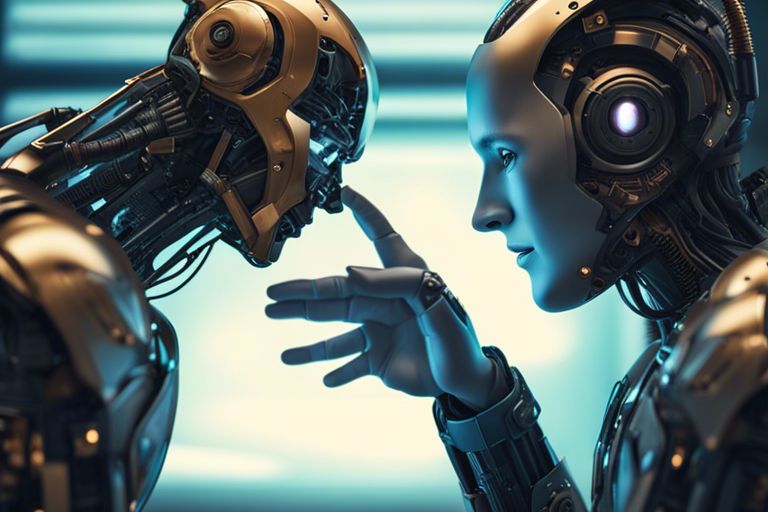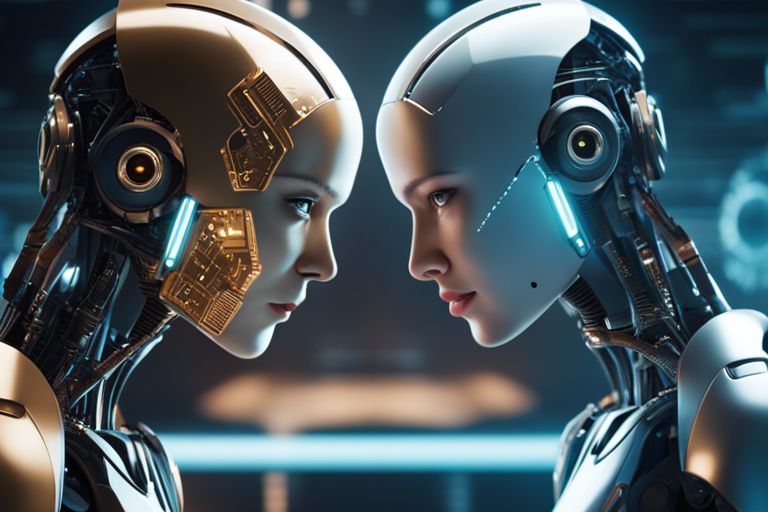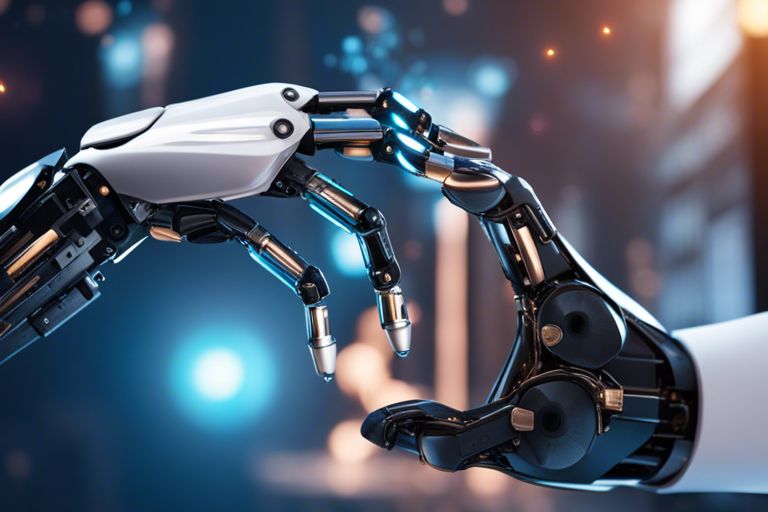You, wandering in the vast landscape of technology, may ponder the enigmatic dance between artificial intelligence and human emotions. Delve into the intricate tapestry where algorithms seek to understand and respond to our feelings, blurring the lines between the analytical mind of machines and the raw, organic essence of humanity. Let us begin on a journey through the ethereal realm where the delicate balance between AI’s logic and our emotions intertwine, echoing whispers of a futuristic world shaped by the fusion of minds and circuits.

Key Takeaways:
- AI Emotion Recognition: Artificial Intelligence is becoming increasingly proficient at detecting and interpreting human emotions through facial expressions, tone of voice, and other non-verbal cues.
- Ethical Concerns: The intersection of AI and human emotions brings forth ethical dilemmas regarding privacy, consent, and the potential manipulation of emotions through targeted algorithms.
- Potential for Positive Impact: While there are risks involved, the synergy between AI and human emotions also offers opportunities for enhancing mental health support, personalized learning experiences, and empathetic human-machine interactions.
The Rise of Emotional Intelligence in AI
Before stepping into the intricacies of emotional intelligence in AI, let’s explore some chatGPT prompts that can shed light on this fascinating intersection:
1. "How can AI be taught to understand human emotions better?"
2. "Discuss the importance of emotional intelligence in artificial intelligence."
3. "Can AI develop empathy towards humans?"
4. "Explore the role of emotional intelligence in improving AI-human interactions."
5. "What are the ethical considerations of integrating emotions into AI systems?"
The Quest for Empathy in Machine Learning
The pursuit of empathy in machine learning is a noble yet complex endeavor. Let’s explore into some chatGPT prompts that can offer insights into this challenging quest:
1. "How can AI be designed to show empathy towards users?"
2. "Discuss the impact of empathetic AI on mental health support."
3. "Explore the challenges of integrating emotions into AI algorithms."
4. "Can AI truly understand and respond to human emotions authentically?"
5. "What are the potential benefits of emotionally intelligent AI in everyday life?"
Teaching AI to Recognize Human Emotions
The ability to teach AI to recognize human emotions marks a significant milestone in the advancement of artificial intelligence. Here are some chatGPT prompts that reflect the complexities of this evolving field:
1. "How can AI accurately identify different human emotions?"
2. "Discuss the techniques used to train AI models for emotion recognition."
3. "Explore the challenges of cross-cultural emotion recognition in AI."
4. "Can AI interpret subtle emotional cues in human communication?"
5. "What are the potential applications of emotion recognition technology in AI?"
Recognize
Teaching AI to recognize human emotions involves a multidimensional approach that combines psychology, linguistics, and computer science. By leveraging advanced algorithms and deep learning frameworks, researchers are making strides in enabling machines to interpret and respond to human emotions accurately. Here are some chatGPT prompts that explore deeper into this fascinating field:
1. "How do AI systems differentiate between emotions like joy and sadness?"
2. "Discuss the role of facial recognition technology in emotion detection."
3. "Explore the ethical implications of AI analyzing human emotions."
4. "Can AI learn to adapt its responses based on the emotional state of the user?"
5. "What are the limitations of current emotion recognition technology in AI?"
Machine
Machine learning algorithms are revolutionizing the way AI recognizes and responds to human emotions. By analyzing vast datasets of facial expressions, tone of voice, and textual cues, AI models can now infer emotions with a remarkable level of accuracy. This development paves the way for more personalized and empathetic interactions between humans and machines, bridging the gap between artificial intelligence and human emotions.

The Impact of AI on Human Emotional Well-being
One of the most intriguing aspects of AI is its ability to interact with and even influence human emotions. As AI becomes more sophisticated, its impact on emotional well-being is a topic of growing interest. Below are some chatGPT prompt samples that probe into this fascinating intersection:
- How can AI be used to enhance emotional intelligence in individuals?
- In what ways can AI assist in managing stress and anxiety?
- What ethical considerations should be taken into account when AI is tasked with analyzing human emotions?
- Can AI-driven therapy sessions effectively improve mental health outcomes?
- How does AI contribute to the understanding of complex emotional states?
The Paradox of Social Isolation in the Digital Age
One challenge posed by the widespread use of AI in communication is the potential for increased social isolation despite being more connected than ever. In this subsection, we explore the implications of this paradox. If you want to probe deeper into this topic, I recommend reading AI’s Next Big Step: Detecting Human Emotion and Expression for a comprehensive understanding.
- How does the use of AI in social interactions affect real-life human connections?
- Can AI-driven platforms like social media contribute to feelings of loneliness and alienation?
- What role does AI play in addressing the challenges of social isolation in modern society?
- Are there potential solutions that AI can offer to mitigate the negative effects of social isolation?
Can AI-driven Chatbots Replace Human Connection?
Any discussion on the impact of AI on human emotional well-being must consider the role of AI-driven chatbots in potentially replacing traditional human connections. Here are some chatGPT prompt samples that explore this intriguing possibility:
- How do AI chatbots influence the quality of emotional support and companionship?
- Can AI-driven chatbots effectively simulate human empathy and understanding?
- What are the risks and benefits of using AI chatbots as substitutes for real human interactions?
- In what ways can AI-driven chatbots complement rather than replace human connections?
- Are there ethical considerations associated with relying on AI for emotional support?
Isolation in the digital age is a complex phenomenon, where despite the constant connection facilitated by technology, individuals may find themselves feeling more isolated and disconnected than ever before. The use of AI-driven chatbots as substitutes for human connection raises questions about the depth and authenticity of emotional interactions in a technologically mediated world.
As we navigate the evolving landscape of AI and its impact on human emotions, it is crucial to strike a balance between the benefits of technological advancements and the irreplaceable value of genuine human connections.

Emotions in the Machine
Not all machines are capable of emotions, but with advancements in artificial intelligence, we are getting closer to the possibility of emotional AI systems. These systems can understand and respond to human emotions, revolutionizing many industries. Here are some chatGPT prompt samples related to this exciting intersection:
- Describe a scenario where an AI system showed empathy towards a human.
- How can emotional AI contribute to mental health support services?
- Discuss the ethical implications of AI systems mimicking human emotions.
- In what ways can emotional intelligence be integrated into AI for better user interactions?
The Role of Emotional Feedback in AI Development
Machine learning algorithms heavily rely on feedback to improve performance. Emotional feedback, whether positive or negative, can significantly impact the development of AI systems. It helps them understand human reactions and tailor responses accordingly. For more insights on emotional feedback and AI, check out this fascinating article on The intersection of human decisions, emotions, design and AI.
- How does emotional feedback contribute to AI learning?
- Discuss the importance of emotional intelligence in AI development.
- Explain the role of user feedback in training emotional AI models.
- In what ways can emotional responses enhance AI algorithms?
The Ethics of Creating Emotional Machines
On the ethical front, the concept of creating machines capable of emotions raises important questions. Should machines be designed to mimic human emotions? How do we ensure they use these emotions responsibly? Exploring these ethical dilemmas is crucial as we probe deeper into emotional AI.
- What ethical considerations should be taken into account when developing emotional AI?
- Discuss the risks associated with emotionally intelligent machines.
- How can we prevent emotional manipulation by AI systems?
- In what ways can emotional AI impact societal norms and values?
Role-playing scenarios where AI systems possess emotions can shed light on the complexity of human-machine interactions and spark debates on the ethical responsibilities of AI creators. In this evolving landscape, striking a balance between technological advancements and ethical boundaries is paramount to ensure a harmonious coexistence of emotional machines alongside human society.
To wrap up
Following this exploration of the intersection of AI and human emotions, it is clear that the advancement of technology has led to unprecedented opportunities for understanding and utilizing emotions in artificial intelligence. As we continue to navigate this complex relationship, it is necessary to prioritize ethical considerations and human values to ensure a harmonious coexistence between AI and human emotions.
FAQ
Q: How is AI impacting human emotions?
A: The intersection of AI and human emotions is a complex and evolving field. AI technologies such as sentiment analysis and emotional recognition are being used to understand and respond to human emotions in various contexts.
Q: Can AI understand emotions as humans do?
A: While AI can be trained to recognize patterns and signals associated with human emotions, it still lacks the depth and nuance of human emotional intelligence. AI systems cannot truly understand emotions in the same way humans do, but they can assist in interpreting and responding to emotional cues.
Q: What are the ethical implications of AI and human emotions?
A: The intersection of AI and human emotions raises important ethical considerations regarding privacy, consent, bias, and manipulation. It is crucial to develop responsible AI systems that respect human emotions and uphold ethical standards in their interactions with individuals.

Recent Comments